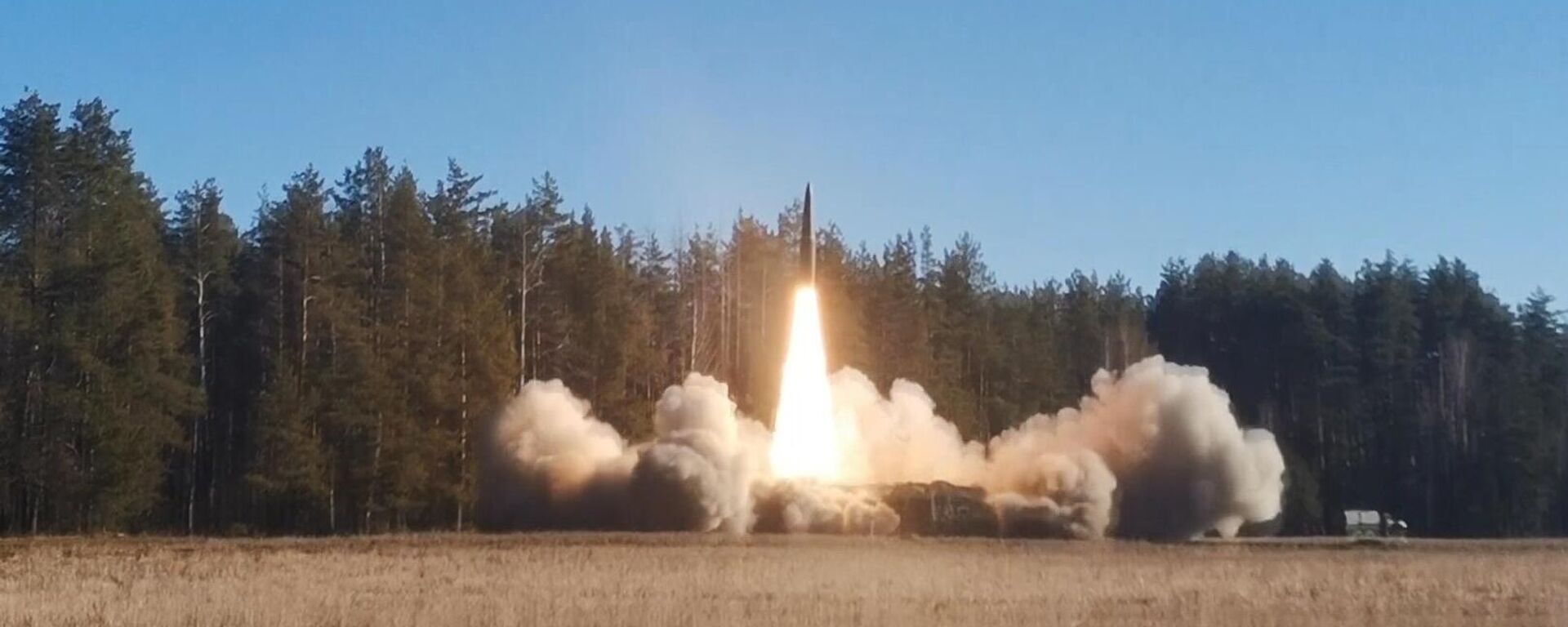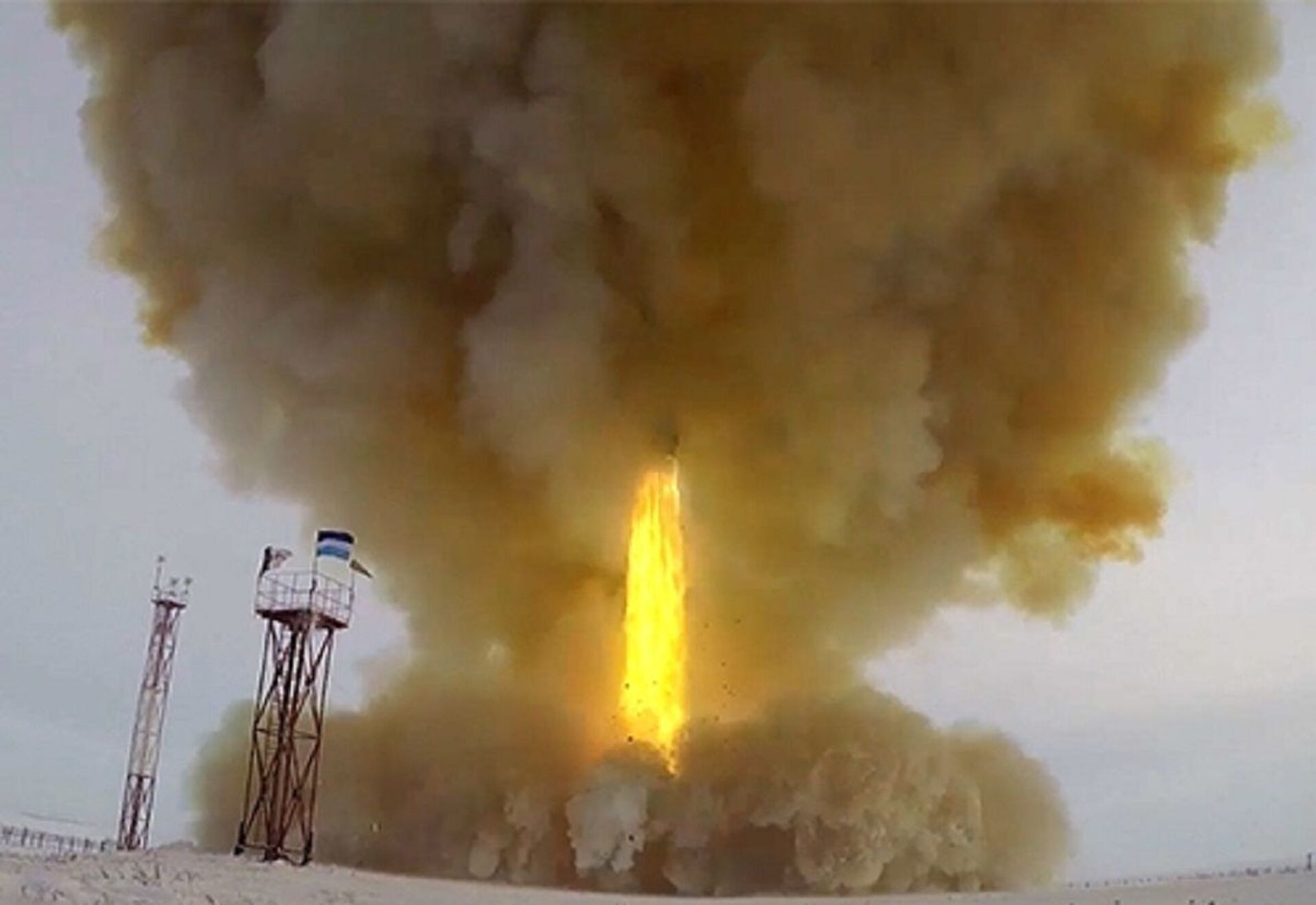https://sputnikglobe.com/20241122/why-us-and-its-nato-allies-cant-intercept-russias-oreshnik-missiles-1120966598.html
Why US and Its NATO Allies Can't Intercept Russia's Oreshnik Missiles
Why US and Its NATO Allies Can't Intercept Russia's Oreshnik Missiles
Sputnik International
The Oreshnik missile flies at a speed of Mach 10, or 3 km per second, retired Russian Army colonel and military analyst Viktor Litovkin told Sputnik, explaining why it can't be intercepted by modern air defenses.
2024-11-22T17:00+0000
2024-11-22T17:00+0000
2024-11-22T17:00+0000
analysis
viktor litovkin
russia
nato
russian army
aegis ashore
hypersonic
hypersonic weapons
ballistic missiles
medium-range missiles
https://cdn1.img.sputnikglobe.com/img/07e8/0b/16/1120966422_12:0:837:464_1920x0_80_0_0_057e3fd6077a0b192622d82edbaf6e6c.jpg
“The unique feature of the Oreshnik missile system is that, firstly, it is a medium-range missile – it flies to a distance of 1,000 km to 5,500 km – and secondly, it is hypersonic, flying at a speed of Mach 10," retired Russian Army colonel and military analyst Viktor Litovkin told Sputnik. Mach 10, or 10 times the speed of sound, equates to 3 km per second, the pundit noted. There is not a single air defense or missile defense system in the world capable of intercepting those hypersonic missiles, Litovkin stressed. The missile’s operating principle is similar to that demonstrated by the Kinzhal hypersonic missile, which is launched by the supersonic MiG-31K aircraft, or the Avangard hypersonic system's glide vehicle accelerated by the UR-100N UТТKh intercontinental ballistic missile, the expert explained. The missile is also equipped with multiple warheads, the pundit pointed out. Some military experts assume that the new Russian missile could carry at least six multiple independently-targeted re-entry vehicles (MIRVs). They suggest that it would take an extremely short time for the medium-range Oreshnik missile to reach key NATO targets in Europe. According to some estimates, the missile could reach the US Aegis Ashore missile base in Redzikowo, Poland in eight to 11 minutes.
https://sputnikglobe.com/20241122/pepe-escobar-oreshnik---the-3-km-per-second-plot-twist-1120965738.html
russia
Sputnik International
feedback@sputniknews.com
+74956456601
MIA „Rossiya Segodnya“
2024
News
en_EN
Sputnik International
feedback@sputniknews.com
+74956456601
MIA „Rossiya Segodnya“
Sputnik International
feedback@sputniknews.com
+74956456601
MIA „Rossiya Segodnya“
russia's medium-range hypersonic ballistic missile oreshnik, russia's oreshnik missile system, nato bases, oreshnik mach 10 speed, russia's new hypersonic missile, russian hypersonic missile kinzhal, avangard hypersonic glider
russia's medium-range hypersonic ballistic missile oreshnik, russia's oreshnik missile system, nato bases, oreshnik mach 10 speed, russia's new hypersonic missile, russian hypersonic missile kinzhal, avangard hypersonic glider
Why US and Its NATO Allies Can't Intercept Russia's Oreshnik Missiles
The Oreshnik missile flies at a speed of Mach 10, or 3 km per second, retired Russian Army colonel and military analyst Viktor Litovkin told Sputnik, explaining why it can't be intercepted by modern air defenses.
“The unique feature of the Oreshnik missile system is that, firstly, it is a medium-range missile – it flies to a distance of 1,000 km to 5,500 km – and secondly, it is hypersonic, flying at a speed of Mach 10," retired Russian Army colonel and military analyst Viktor Litovkin told Sputnik.
Mach 10, or 10 times the speed of sound, equates to 3 km per second, the pundit noted. There is
not a single air defense or missile defense system in the world capable of intercepting those hypersonic missiles, Litovkin stressed.
"The West does not have missiles that fly at such a speed or hypersonic missiles at all," the pundit continued. "Although the US has repeatedly boasted that it has such missiles, it has never demonstrated a missile flight. They appeared to show missiles that flew at a supersonic speed of 5.5 times the speed of sound or Mach 5.5. However, hypersonic speed begins at Mach 6-7."
The missile’s operating principle is similar to that demonstrated by the
Kinzhal hypersonic missile, which is launched by the supersonic
MiG-31K aircraft, or the
Avangard hypersonic system's glide vehicle accelerated by the UR-100N UТТKh intercontinental ballistic missile, the expert explained.
The missile is also equipped with multiple warheads, the pundit pointed out.
"The missile accelerates its entire warhead to hypersonic speed with the separating blocks flying to the target also at hypersonic speed," Litovkin said.
Some military experts assume that the new Russian missile could carry at least six multiple independently-targeted re-entry vehicles (MIRVs).
They suggest that it would take an extremely short time for the medium-range Oreshnik missile to reach key NATO targets in Europe. According to some estimates, the missile could reach the US Aegis Ashore missile base in Redzikowo, Poland in eight to 11 minutes.

22 November 2024, 15:59 GMT




